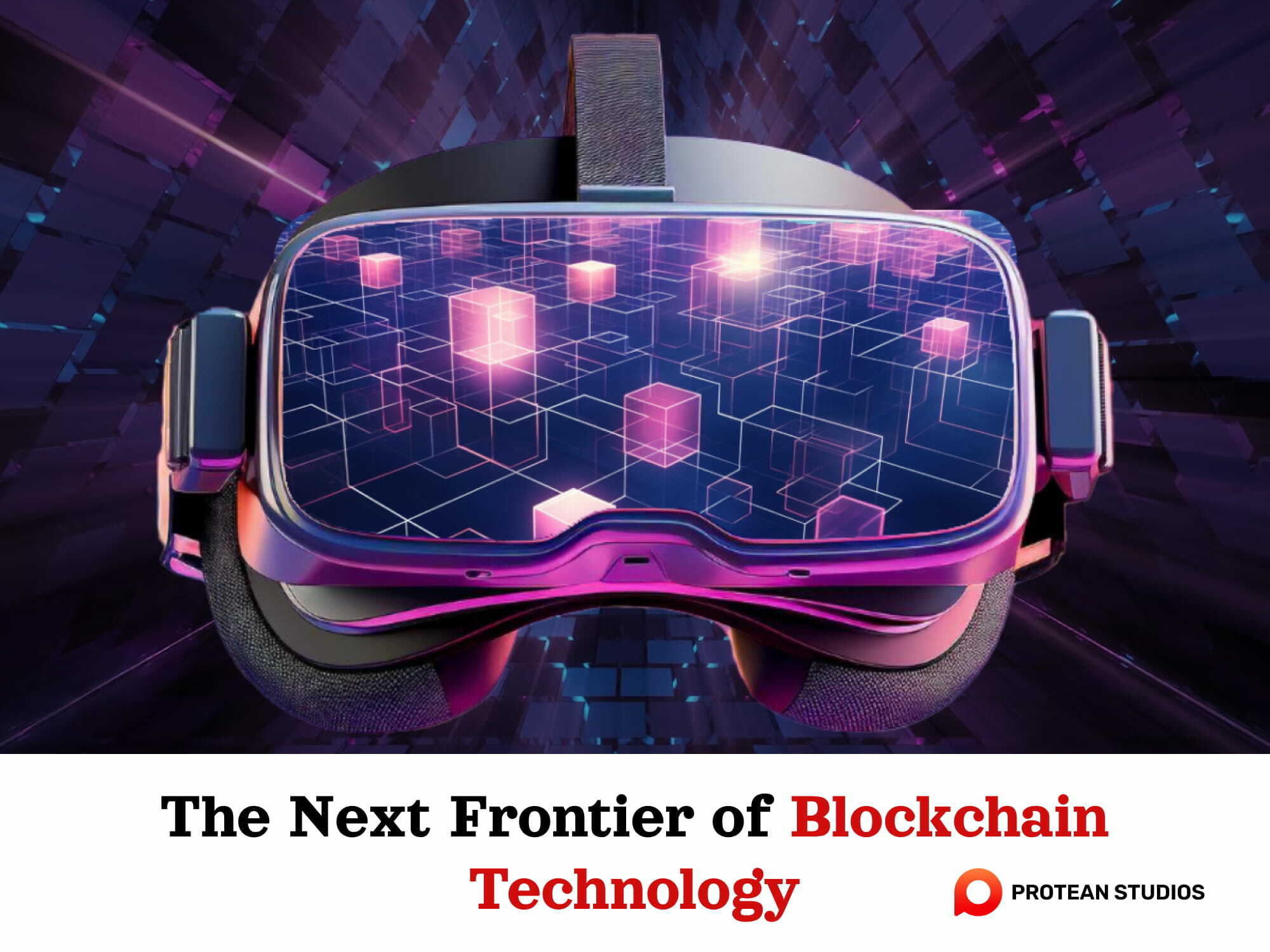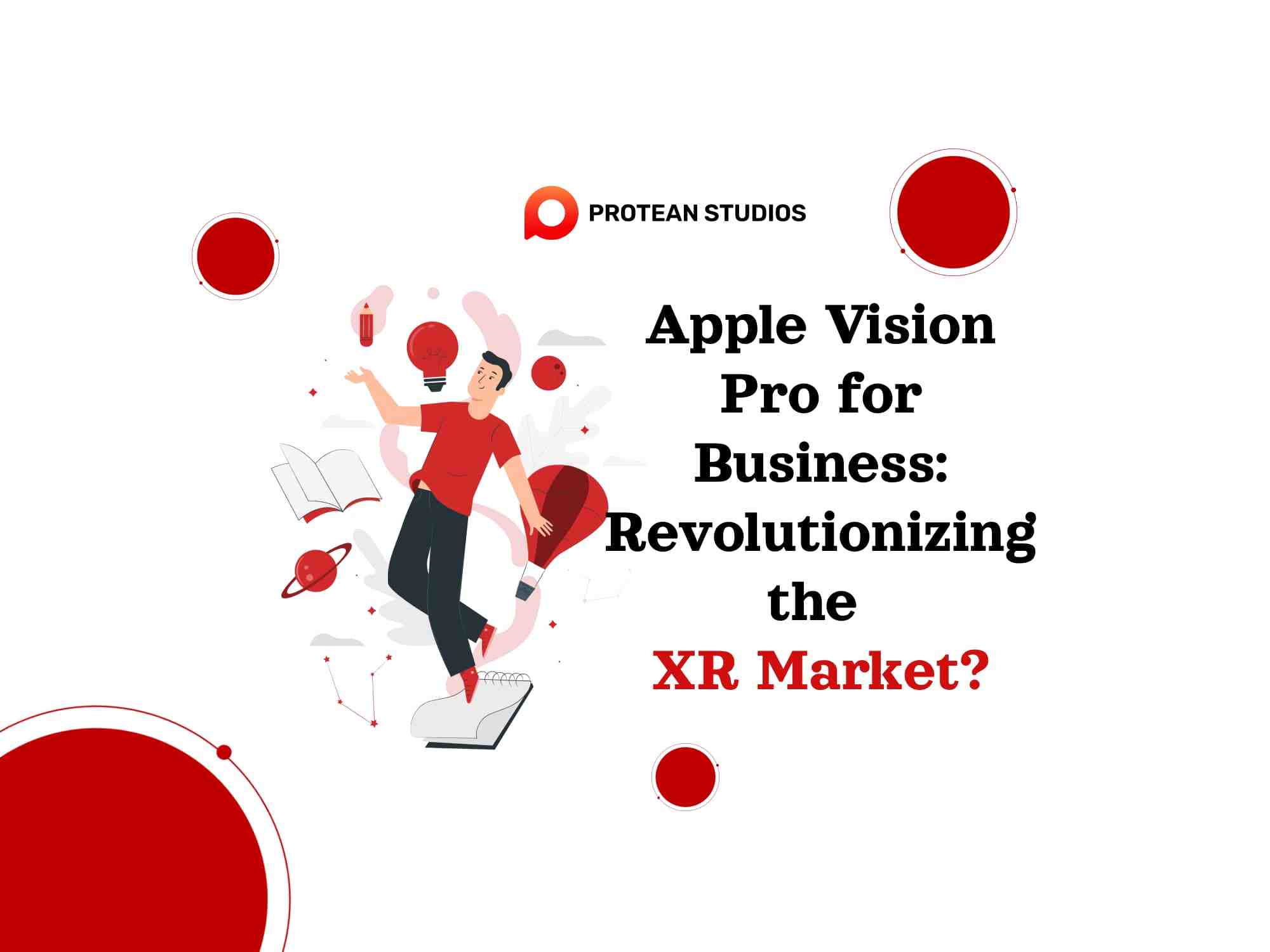The rise of marketing technology (MarTech) has transformed the B2B marketing landscape. But has it disrupted the way businesses approach customer acquisition and retention? This introduction will delve into the pre-MarTech era of B2B marketing, highlighting the challenges faced, and then explore how MarTech has introduced new tools and strategies.
We'll then analyze the impact of MarTech, exploring whether it represents a fundamental shift or a significant evolution in B2B marketing practices.
Part 1: The promise
The birth of marketing technology (MarTech) brought immense potential to the marketing department.
It was the early 2000s. The internet was booming, cloud computing was on the rise, and companies like Adobe and Salesforce were driving innovation. MarTech was about to revolutionize the industry. Back then, they were pioneering new strategies with little guidance.
Lead magnets
Lead capture forms
Lead scoring
Lead ranking
Lead routing
Lead nurturing
Tracking prospect activity on their website
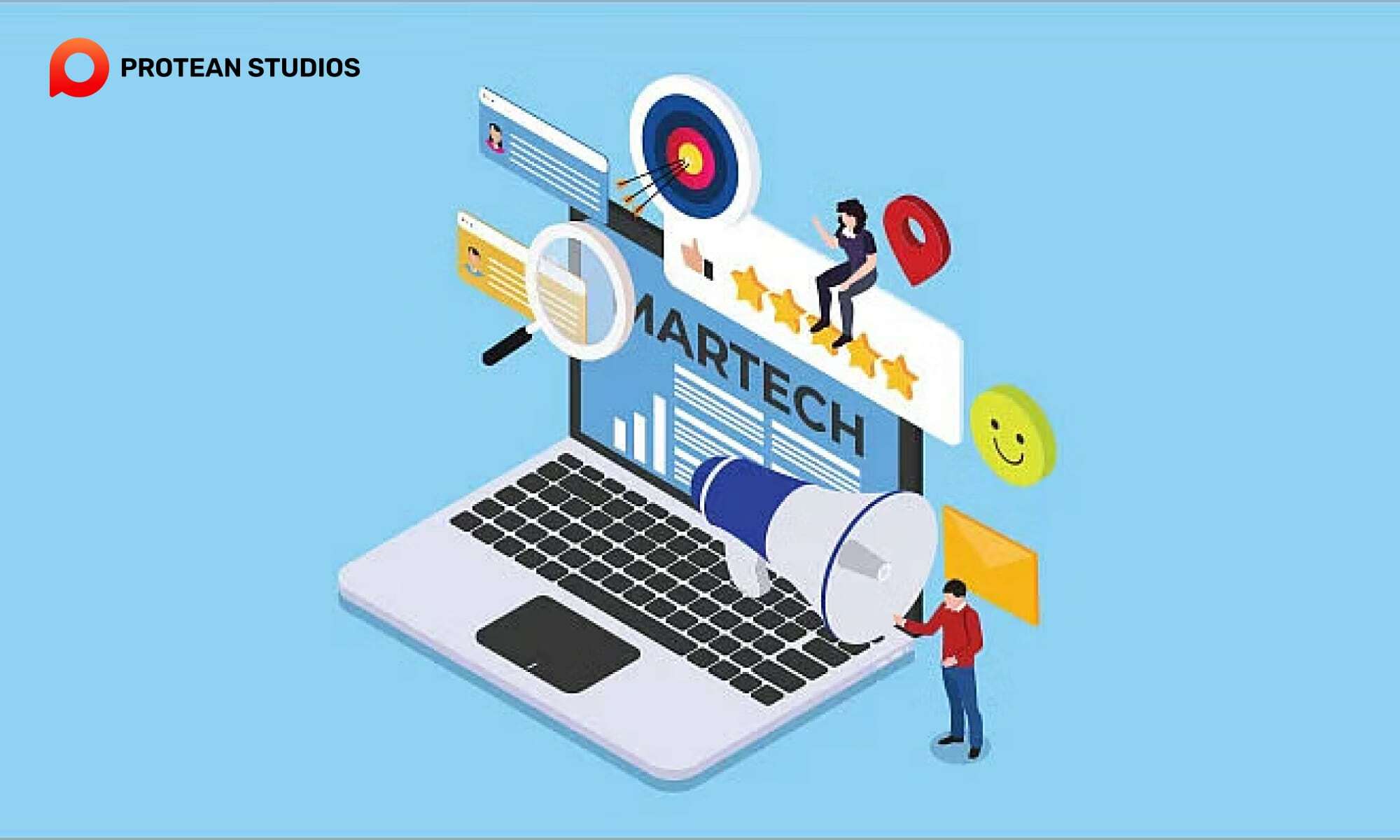
This was empowering, and marketing started to gain more respect in board meetings. SiriusDecisions, now part of Forrester, introduced the marketing funnel, which became a B2B marketing staple for the next 15 years.
MQLs (Marketing Qualified Leads)
SQLs (Sales Qualified Leads)
SALs (Sales Accepted Leads)
Marketing and sales alignment were at their peak. Promotions were earned, bonuses claimed, and lead generation reached an all-time high. New sub-niches emerged within the marketing discipline, centered around marketing automation tools like Eloqua, Marketo, and HubSpot.
For a while, B2B marketing thrived. But gradually, things began to change.
Read more: What Is B2B Marketing? Guide To 2024’S Best Strategies!
Part 2: The shift
Yet, as MarTech proliferated, the B2B marketing landscape began to shift. The market became saturated with tools, platforms, and systems, each promising better results than the last. Marketers found themselves drowning in data, struggling to integrate disparate systems, and losing the human touch that is so crucial in B2B relationships.
The focus shifted from building relationships to managing technology, leading to a depersonalization of the marketing process. In this period, there are some changes, as follows:
Data-Driven Decisions: Marketers could base decisions on concrete data rather than intuition, leading to more effective campaigns.
Personalized Experiences: Customer journeys became more tailored, fostering stronger relationships and brand loyalty.
Agile Marketing: Faster campaign creation, testing, and optimization cycles allowed for swift adaptation to market changes.
Omnichannel Marketing: Reaching customers across many channels with consistent messaging became a reality.
Part 3: The Crossroads
In 2024, marketing and MarTech professionals will face a critical time. They’re expected to do more with less, enhancing both efficiency and effectiveness. It's not just about generating more leads; now we need leads with genuine buying intent.
The challenge is that technology alone can't deliver effectiveness. This is where artificial intelligence comes in.
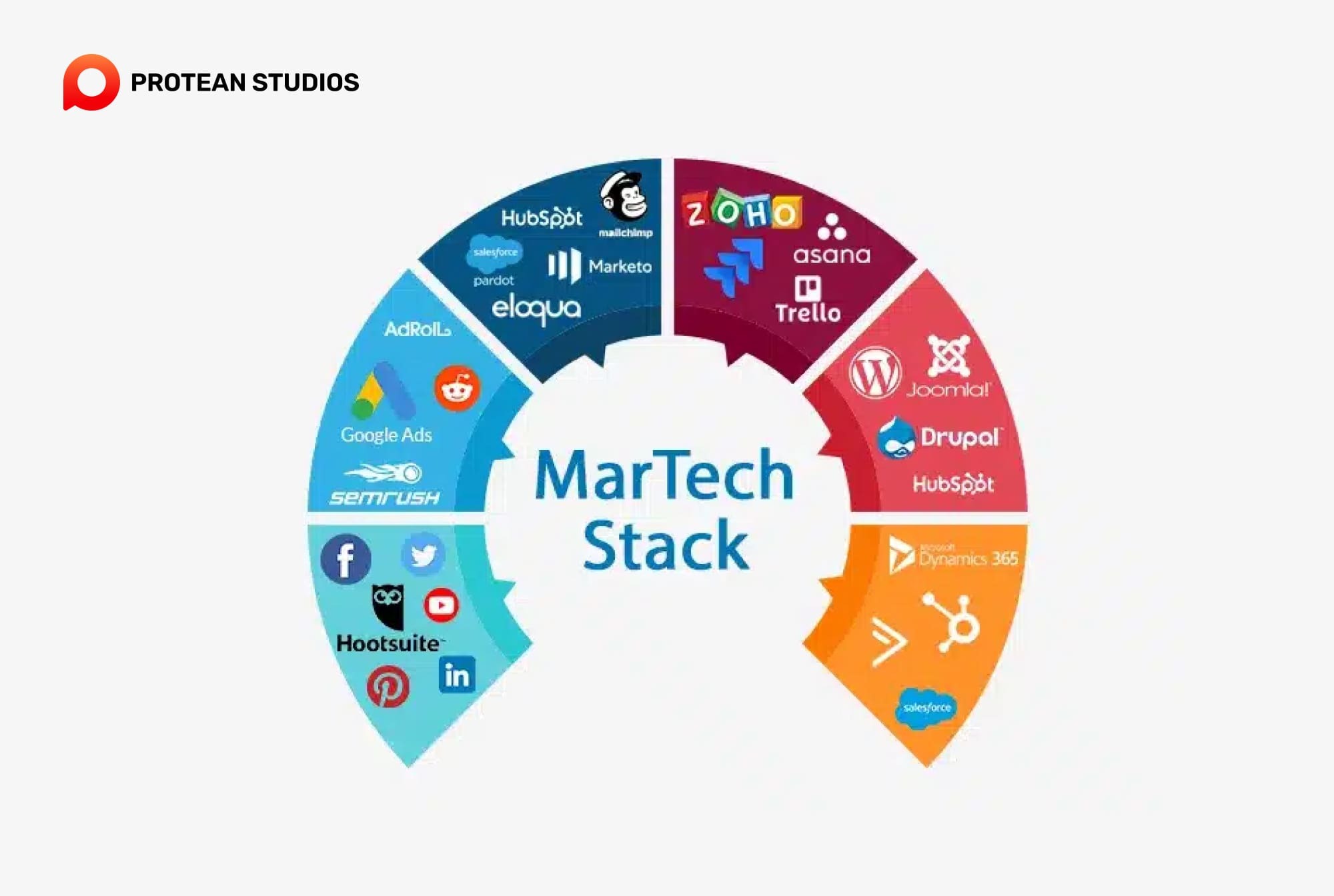
Over the past year, every SaaS vendor has promoted AI as a core feature, even when it’s sometimes just hype. But 2024 brings exciting AI technologies. But are we about to repeat past mistakes?
Eighteen years ago, marketing automation revolutionized efficiency. AI promises to do the same now, but is that enough? It's called marketing technology for a reason: marketing should come first, with technology supporting it. There's a risk of letting AI-driven technology take over, allowing it to lead our marketing efforts.
We are at a crossroads and must decide: Are we marketers or technologists? Technology will always be part of our jobs, but we need to choose whether we serve the technology or the customer.
Part 4: What's the Next Step?
The next step is a renaissance of B2B marketing principles, where technology serves as an enabler rather than the end goal. Marketers must embrace tools that enhance human interaction, not replace it. Data should inform and guide strategy, but not at the expense of genuine connections. The future of B2B marketing lies in a harmonious blend of MarTech and traditional relationship-building tactics.
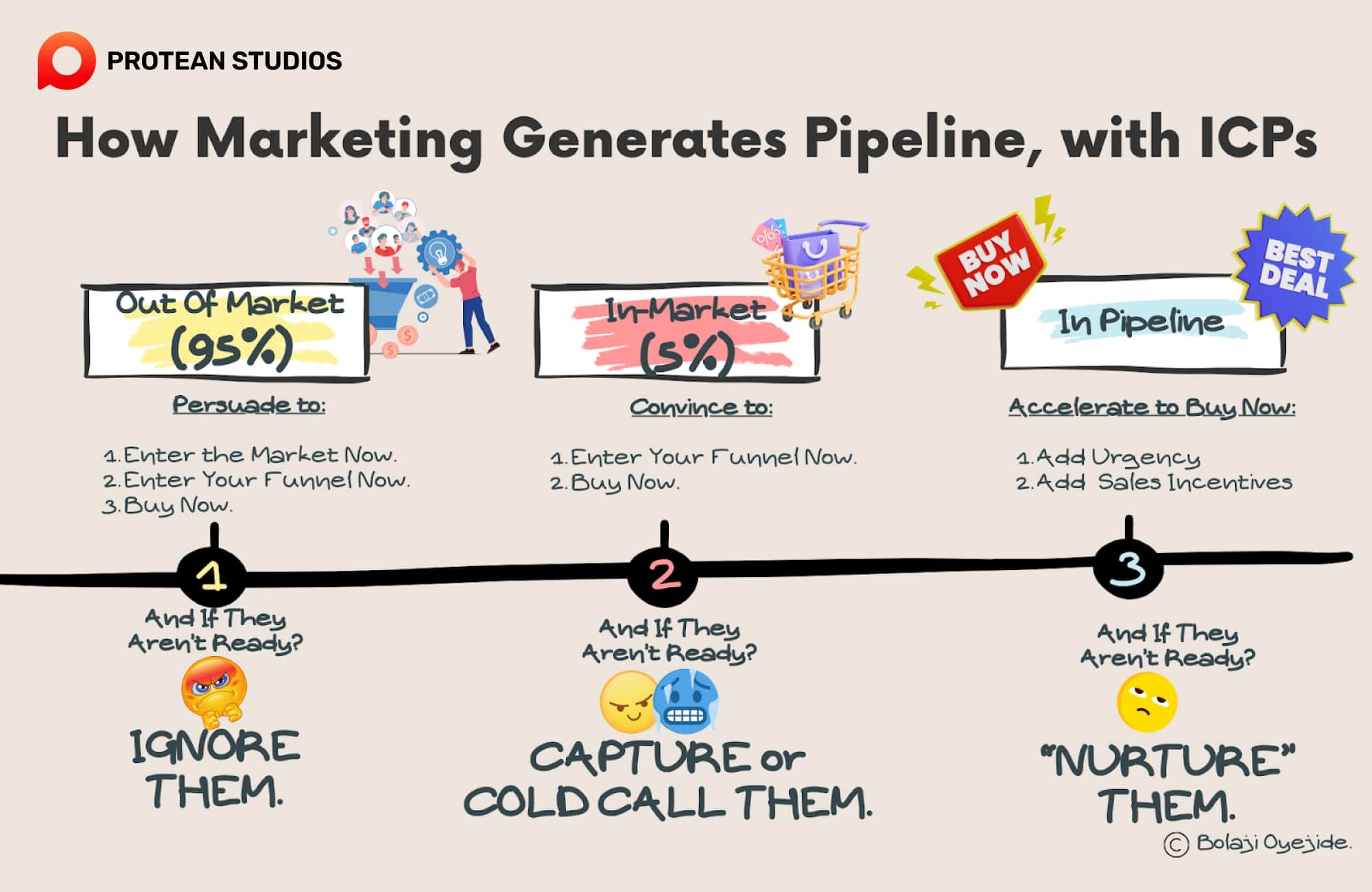
Learn more: Top Important B2B Marketing Trends For 2024
As a business, you can focus on two main aspects:
Drive Efficiency for the 5%: We need MarTech to cater to the 5% of buyers who are already in the market. Our goal is to cut friction and speed up their buying journey by providing them with the information they need.
Find effectiveness for the 95%: We need an improved strategy for engaging the 95% of our future buyers who are not yet in the market.
In conclusion, MarTech has not broken B2B marketing, but it has tested its foundations. The key to success lies in using MarTech as a bridge to connect with customers on a deeper level, ensuring that amidst the noise of technology, the signal of human connection remains clear and strong.
---------------------------------
Are you struggling to break into the MarTech industry or looking for the latest marketing tools? Protean Studios is here to help. With our extensive experience in software development and MarTech, we can craft tailored applications that align with your unique requirements.
Contact us to learn more!



